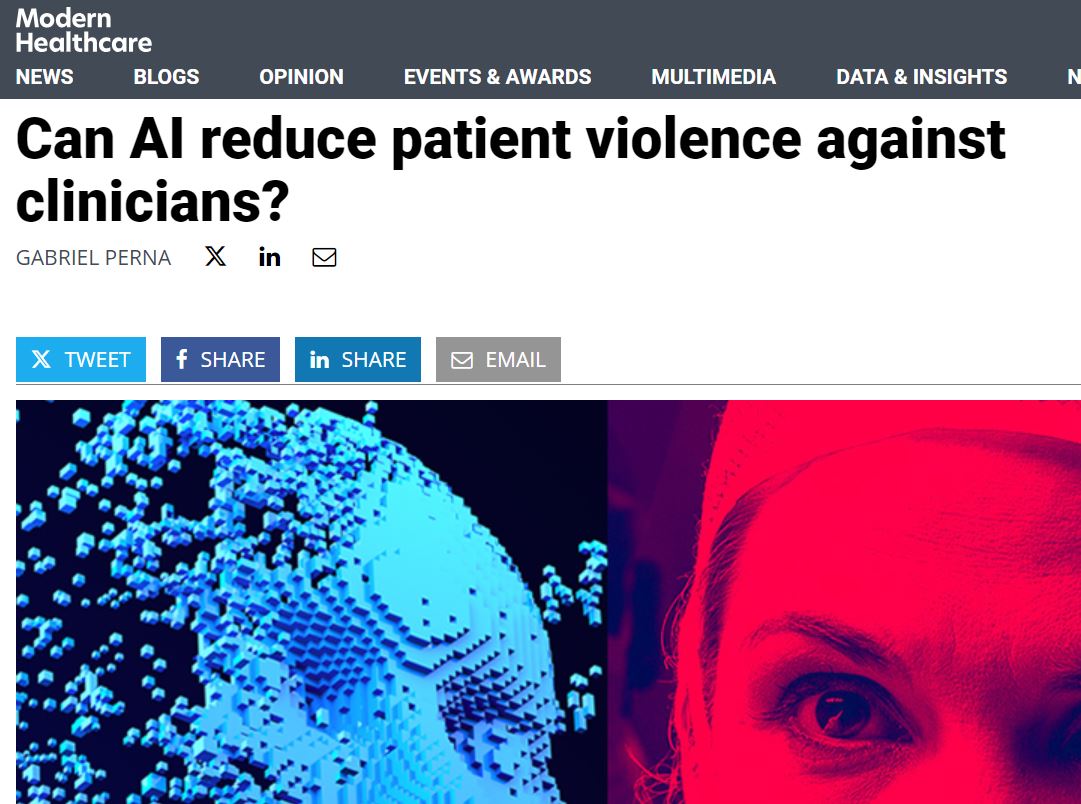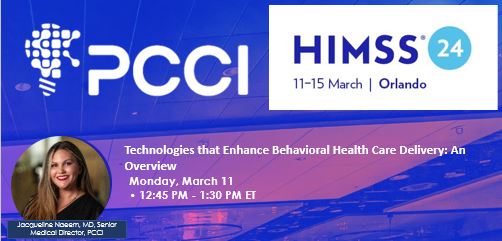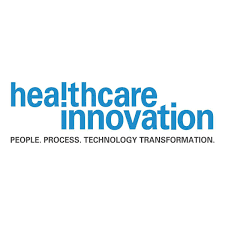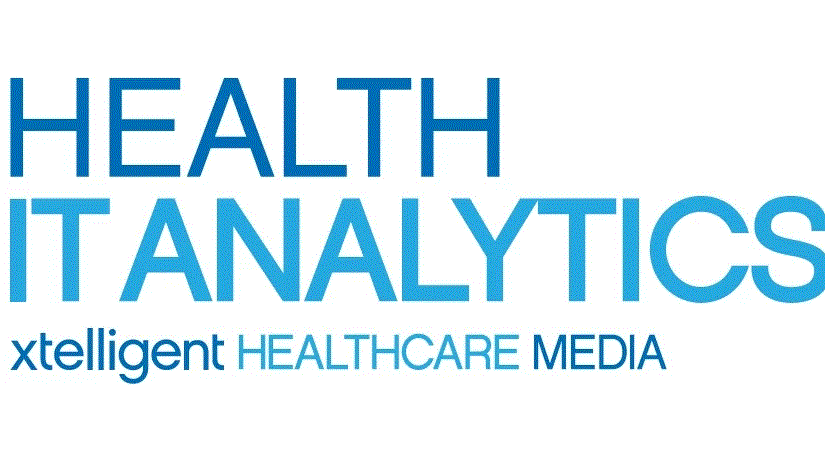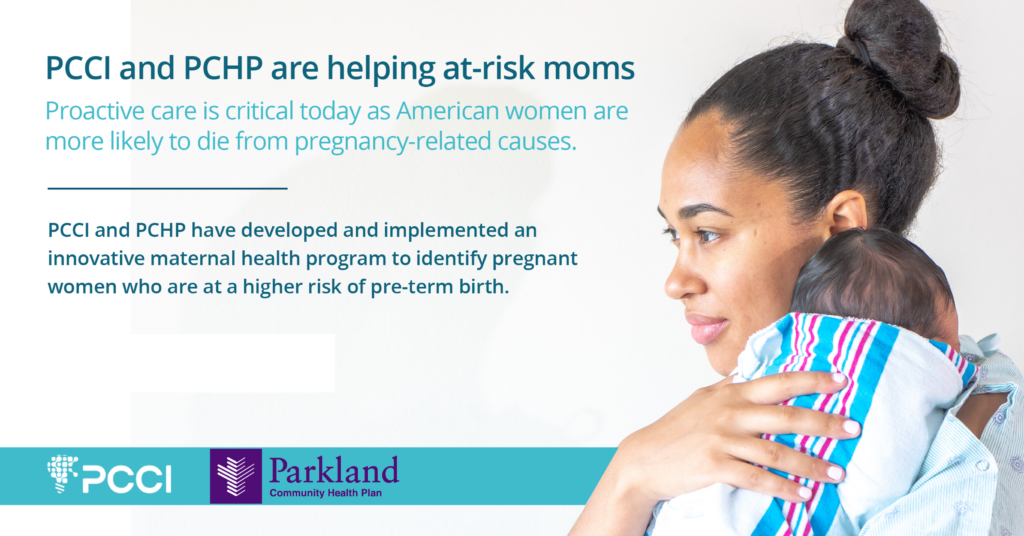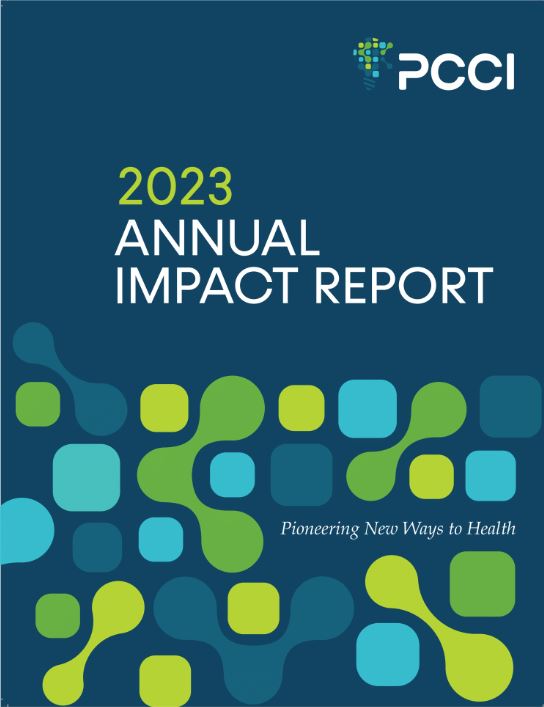Pegasus Park Non-profit Innovators Collaborating with PCCI’s Community Vulnerability Compass, Offering Custom Data Insights to Accelerate Each Organization’s Efforts
Sponsored by the Water Cooler at Pegasus Park, The Dallas Foundation, and Lyda Hill Philanthropies, seven tenants at the Pegasus Park innovation hub are participating in a community of practice utilizing PCCI’s Community Vulnerability Compass (CVC) to help further their community-driven missions.
PCCI’s CVC is a technology toolkit that provides customized, foundational insights on community needs and complements insights generated by individual organizations. Through an easy‐to‐use web‐based dashboard, the CVC offers summarized information and root-cause details of neighborhood vulnerabilities that drive inequity. PCCI’s CVC is leveraged by organizations around the state, such as the United Way of Metropolitan Dallas, to improve their understanding of the community they serve. Through a fuller understanding of these root causes, these innovative organizations can better align efforts to create connected communities and develop better programs, resources, and interventions to eliminate disparities, achieve health equity, and improve the lives, health and well‐being of underserved residents and communities.
The participating Water Cooler-based organizations include innovative non-profits with missions to build a better community for all. They are:
The City Year AmeriCorps members serve in schools all day, every day, preparing students with the social, emotional, and academic skills and mindsets to succeed in school and in life.
The Grant Halliburton Foundation works to strengthen the network of mental health resources for children, teens, and young adults; promote better mental health; and prevent suicide.
The Junior Achievement of Dallas (JA Dallas), a nonprofit organization impacts the lives of students by teaching life skills in budgeting, careers, and business start-ups. JA Dallas’s mission is to inspire and prepare young people to succeed in a global economy through volunteer-delivered curriculum.
Social Venture Partners Dallas is committed to helping individuals realize greater impact with their giving, strengthening nonprofits, and investing in collaborative solutions.
Texas Trees serves as a catalyst in creating a new green legacy for North Texas through transformational, research-based plans that educate and mobilize the public to activate the social, economic, environmental, and health benefits that trees and urban forestry provide for a better quality of life.
The Commit Partnership is a collective impact organization composed of hundreds of partners across Dallas County and the state of Texas supported by a dedicated ‘backbone’ staff of 60+ professionals.
Established as the first community foundation in Texas in 1929, the Dallas Foundation brings together people, ideas, and investments in Greater Dallas so individuals and families can reach their full potential. Over the course of the Foundation’s history, it has granted over $1B to the full spectrum of community-centered causes.
“We are honored to partner with and support our colleagues at the Water Cooler at Pegasus Park with the capabilities that the CVC offers,” said Steve Miff, CEO of PCCI. “The program’s sponsors, Water Cooler at Pegasus Park, The Dallas Foundation, and Lyda Hill Philanthropies, are strong supporters of the missions of each of the participating organizations and we are exceedingly grateful to them for helping support these collaborations to build a better community.”
Water Cooler’s mission is to support organizations in their quest to attract and retain talent, engender collaboration among members, reduce administrative costs, and ultimately, increase collective impact on key social issues. Water Cooler’s nonprofit and philanthropic tenants are co-located among five floors and roughly 175,000 square feet within Pegasus Park’s main 18-story tower in Dallas. The Water Cooler at Pegasus Park is sponsored by Lyda Hill Philanthropies, in partnership with J. Small Investments and Montgomery Street Partners and managing partner The Dallas Foundation.
PCCI, founded in 2012, is a not-for-profit, healthcare innovation and research organization affiliated with Parkland Health. PCCI leverages clinical expertise, data science, and Non Medical Drivers of Health to address the needs of vulnerable populations.


